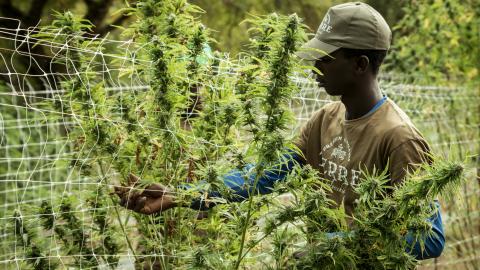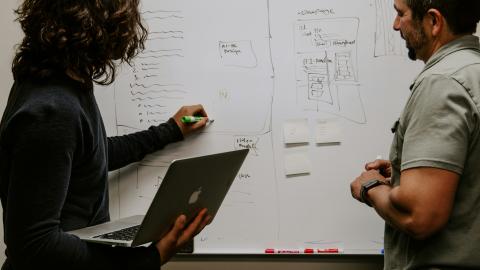
July 13, 2021
In May 2020, the Northwest Center for Occupational Health and Safety (NWCOHS) reflected on how to acknowledge and respond to calls for racial justice. Prompted by one of our trainees, we posted a commitment to anti-racism on our blog. We would like to provide an update on the activities we have engaged in this past year that address this commitment.
Our goal: to explore how structural racism contributes to circumstances that pose greater risk for exposure to occupational hazards and consequent disproportionate burden of work-related injury and illness among workers of color. In summer 2020, we formed a work group of faculty, staff and trainees to develop a series of anti-racism learning activities for the 2020-2021 academic year that covered:
- Foundational concepts of institutionalized racism, anti-racism, diversity, inclusion and an exploration of personal identity, intersectionality and positionality.
- How racism plays out in occupational health and safety through historical and present-day case studies.
- The role occupational health and safety professionals and researchers can play to advance anti-racism to protect the health and well-being of workers with racially marginalized identities.
In autumn 2020, the work group compiled videos, podcasts, articles and other resources for trainees to review in advance of small group discussions on these foundational concepts.
In winter 2021, NWCOHS trainees learned about and examined case studies that illustrate how racism plays out in worker health and safety contexts. The case studies spanned Immigrant Agricultural Workers and COVID-19, Uranium Mining and the Navajo Nation and the Gauley Bridge Hawks Nest Tunnel Tragedy.
Spring 2021 started with a panel discussion with representatives from Washington’s agriculture and farmworker populations from the Community for the Advancement of Family Education Wenatchee and El Proyecto Bienestar and Radio KDNA. Trainees, staff and faculty also attended the 2021 Worker Memorial Day event, which focused on anti-racism. We concluded the quarter with another panel discussion with occupational health and safety professionals about how they engage with anti-racism within their workplaces and responsibilities as worker health advocates.
Trainees reflect on their experience participating in the anti-racism activities this year
Allyson O’ Connor, PhD candidate, Occupational Health Services Research (OSHR)
This was a beneficial opportunity to discuss racism as a social determinant of health, but also to discuss how racism manifests with our fellow students and faculty across disciplines within the occupational health and safety (OHS) field. Across the disciplines represented by the ERC, from health services research to industrial hygiene to occupational medicine, we all have a different role in OHS. An anti-racism perspective and anti-racism work may look a little different from each of these disciplines and careers, so these activities offered a format to discuss both opportunities and barriers to this work.
O’Connor also participated in the ERC’s anti-racism workgroup: The more we discuss how OHS and racism interact in workplaces, the more prepared we are to recognize and intervene for the betterment of workplace health and safety and worker empowerment. These ERC workshops were meant to be self-reflective and educational, but I think they were also another opportunity to practice discussing anti-racism and to normalize these discussions a little bit more.
Eunice Soh, PhD candidate, Occupational Health Nursing (OHN)
My understanding of the interconnectedness between life and work and the relationship to co-constituting systems of power has been reinforced through this past year's anti-racism activities. The layout of the activities from the intra/interpersonal to the societal/macro level has highlighted the critical importance of self-reflexivity and investigating the many layers through which racism and "-isms" function to impact workers. This understanding is foundational to addressing worker health inequities and will be something I carry forward in my personal and professional development.
Soh also participated in the ERC’s anti-racism workgroup: The folks participating in the workgroup brought diverse and shared perspectives that I greatly appreciated and learned from. Also, since participation was voluntary, the deep level of interest and engagement allowed for productive discussions surrounding the planning of activities and in activity evaluation/reflection.
Madeline Benoit, MPH One Health graduate, Occupational Health at the Human Animal Interface (OHHAI)
The ERC anti-racism trainings and events were imperative to building my foundation as an anti-racist ally, and allowed for frank and open discussion about how occupational health as a profession, our department, and us as students and faculty should shift our lenses of focus to address larger, systematic and systemic issues. Historically, even in the research, occupational health and safety research is not always focused on the worker. So often, researchers may overlook perceptions and thoughts of workers as it pertains to health and safety training, or may not label workers as "stakeholders" at any table for discussion, and I am relieved that this convention is changing for the better. However, these shifts will only come forth if we continue to have these discussions, shine light on the issues, get real about our individual privilege and do the work that is required to make systemic changes and create solutions.
The ERC anti-racism trainings and events have completely shifted my worldview, and helped me focus on why environmental and occupational health is so important, why I am here and what we need to do with the forward momentum (and upheavals) created by the pandemic. I want to use all that I have learned to leave my mark on this world by changing the status quo, and above all, protecting workers.
Looking ahead
NWCOHS recognizes that this past year’s activities are a starting point. The work group will discuss how to capitalize on these efforts in the coming months and design goals for the coming year. We will identify actions to institute anti-racist and anti-oppression content and processes throughout our curricula, research investment and operations in support of workers of color, and we will improve mechanisms to report progress for transparency and accountability.
Photo credit: melita via AdobeStock




